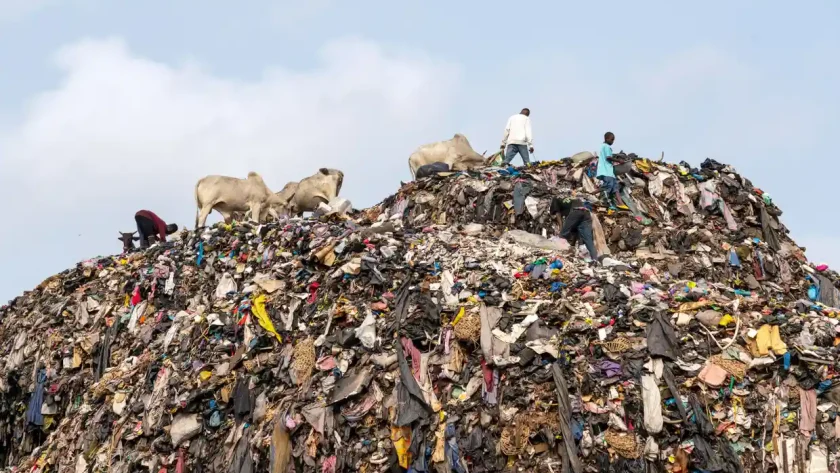Firms will also have to disclose how much of their unsold product they are sending to landfill under new design rules
As it announces a massive expansion of ecodesign rules that could be applied to all products in the future, the European Commission calls for an end to fast fashion by 2030.
As part of a broad plan to curb throwaway culture, the EU executive wants large companies to reveal how much stock they have left to be disposed of.
The EU eco-design standards, which establish energy efficiency standards for many consumer goods such as washing machines and toasters, will in the future also cover durability and recyclability. For example, manufacturers may be required to use recycled content in their products or limit the use of materials that are difficult to recycle.

“The products we use every day need to last,” Frans Timmermans, the European Commission vice-president in charge of the EU green deal, told reporters. “We should be able repair products if they break.” He said that a smartphone shouldn’t lose its functionality, and gestured to his own phone to express frustration at the inability to replace the battery without specialist assistance. He added, “The clothes that we wear should be durable and can be recycled after three washes.”
Virginijus Sinkevicius (EU environment commissioner), stated that the EU wants fast fashion to “get out of fashion”. He said: “By 2030 textiles on the EU Market should be long-lived, recyclable, and made to a large degree from recycled fibers.”
He expressed optimism that consumers would accept the idea of continually updating their looks. “They [clothes] won’t need to be thrown out and replaced as often now and that way consumers actually gain a nice option, an attractive alternative to fast-fashion.”
The extent to which the plans will affect the fashion industry is still unclear. There have not been any decisions regarding regulating particular products. The first round of EU ecodesign regulation is likely to be focused on carpets and mattresses. A senior EU official stated that it was unlikely and almost impossible for the EU to apply rules to socks. “It is more likely to apply rules across apparel and footwear.”
Each year, the average European throws out 11kg worth of clothes, shoes, and other fabric goods. After food, housing, and transport, textiles are the fourth largest emitter of greenhouse gases. They also consume large amounts of water, and raw materials.
The proposals could have an enormous impact on the world if they are implemented. Nearly three-quarters of all clothing and household textiles used in the EU are imported from other countries.
Officials said that they need more information to determine if the commission will ban unsold goods from being sent to landfills. Sinkevicius stated that a requirement for companies to disclose unsold goods sent to landfills would “be a very effective reputation disincentive”.
These proposals are part of the EU’s circular economy plan. It aims to reduce Europe’s impact on the world’s natural resources. In an effort to combat greenwashing, the commission wants to amend EU consumer law. If the substance of the claim is not supported, it will be prohibited to describe a product as “environmentally-friendly” or “eco”.
Consumers will be required to know what features shorten the product’s life span, such as software that disables or reduces functionality over time.
Nusa Urbancic is the director of the Changing Markets Foundation Non-Governmental Organization. She said that the fashion industry has escaped the “polluter pays” principle for too long. “High-street brands have a lot of clothes, which aren’t made to last, but they don’t pay for the waste that is dumped in developing countries. She said that this is incorrect and would likely change with today’s announcement.”




